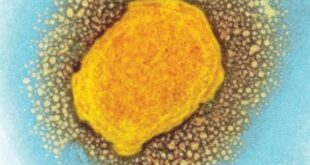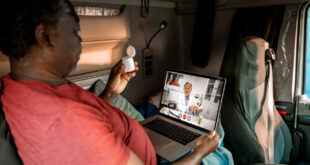At his monthly meeting from Geneva, Tedros said, “We cannot say we are learning to live with COVID-19 when one million people have died from it this year alone and we have all the tools we need to stop these deaths.” (2.15 years into the pandemic).
In order to vaccinate 70% of the world’s population, he once again asked all countries to step up their efforts to vaccinate all health workers, older people, and other high-risk groups.
Progress for groups that matter
Tedros said it made him happy to see that some of the least vaccinated countries are now making progress, especially in Africa.
WHO and its partners started the COVID-19 Vaccine Delivery Partnership in January. Its main goal was to help the 34 countries with coverage rates of 10% or less.Except for six, they are all on land.
There are still 10 countries with less than 10% service, and most of them are in the middle of humanitarian crises.
Still not enough vaccines
Tedros welcomed progress in reaching high-priority groups, but he stressed that more needs to be done because one-third of the world’s population still hasn’t been vaccine.
Two-thirds of health workers and three-quarters of older people in countries with low incomes fall into this category.
“Countries of all income levels need to do more to vaccinate those who are most at risk, make sure everyone has access to life-saving medicines, keep testing and sequencing, and make sure that each country has the right policies in place to stop the spread of disease and save lives.” I think this is the best way to make the comeback last,” he said.
This is Harun Tulunay.
In London, UK, a man gets better from monkeypox at a hospital.
Reversal of monkeypox
In the meantime, monkeypox is still spreading quickly in the Americas, even though the number of cases around the world dropped by more than 20% last week.
In the early stages of the spread, most of the cases were in Europe and only a small number were in the Americas. Things have now turned around.
At the moment, less than 40% of cases recorded are in Europe, while 60% are in the Americas.
Tedros said that there are signs that the outbreak is slowing down in Europe. There, successful public health measures, changes in behavior, and vaccinations are helping to stop the disease from spreading.
He said, “However, in Latin America in particular, a lack of public health measures or awareness is making the outbreak worse, and people aren’t able to get vaccines.”
Tedros praised Bavarian Nordic, a company that makes vaccines, for partnering with WHO’s Regional Office for the Americas on Wednesday to make sure people in Latin America and the Caribbean can get their hands on the Monkeypox vaccine.
He said that he hoped the new information would help stop the outbreak in the reg
 Pakish News We are an interactive media group that here a purpose to update users with the latest information. Our mission is to give you knowledge not only about your surroundings. We will also update you around the Globe.
Pakish News We are an interactive media group that here a purpose to update users with the latest information. Our mission is to give you knowledge not only about your surroundings. We will also update you around the Globe.



